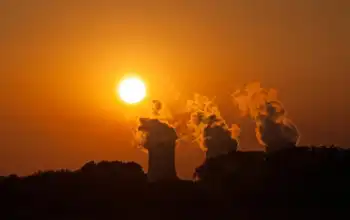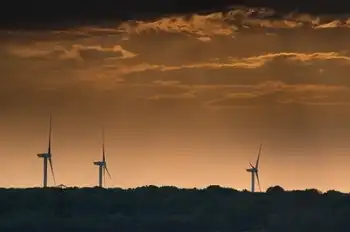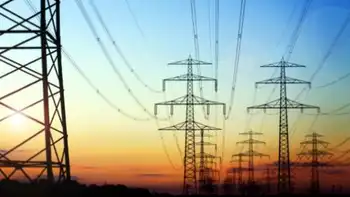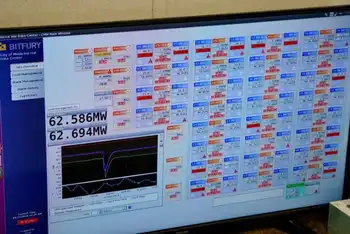European responses to Covid-19 accelerate electricity system transition by a decade - Wartsila

CSA Z463 Electrical Maintenance
Our customized live online or in‑person group training can be delivered to your staff at your location.

- Live Online
- 6 hours Instructor-led
- Group Training Available
EU-UK Coal Power Decline 2020 underscores Covid-19's impact on power generation, with renewables rising, carbon emissions falling, and electricity demand down, revealing resilient grids and accelerating the energy transition across European markets.
Key Points
Covid-19's impact on EU-UK power: coal down, renewables up, lower emissions intensity and reduced electricity demand.
✅ Coal generation down 25.5% EU-UK; 29% in March 10-April 10 period
✅ Renewables share up to 46%; grids remained stable and flexible
✅ Electricity demand fell 10%; emissions intensity dropped 19.5%
Coal based power generation has fallen by over a quarter (25.5%) across the European Union (EU) and United Kingdom (UK) in the first three months of 2020, compared to 2019, as a result of the response to Covid-19, with renewable energy reaching a 43% share, as wind and solar outpaced gas across the EU, according to new analysis by the technology group Wärtsilä.
The impact is even more stark in the last month, with coal generation collapsing by almost one third (29%) between March 10 and April 10 compared to the same period in 2019, making up only 12% of total EU and UK generation. By contrast, renewables delivered almost half (46%) of generation – an increase of 8% compared to 2019.
In total, demand for electricity across the continent is down by one tenth (10%), mirroring global demand declines of around 15%, due to measures taken to combat Covid-19, the biggest drop in demand since the Second World War. The result is an unprecedented fall in carbon emissions from the power sector, with emission intensity falling by 19.5% compared to the same March 10-April 10 period last year. The analysis comes from the Wärtsilä Energy Transition Lab, a new free-to-use data platform developed by Wärtsilä to help the industry, policy makers and the public understand the impact of Covid-19 on European electricity markets and analyse what this means for the future design and operation of its energy systems. The goal is to help accelerate the transition to 100% renewables.
Björn Ullbro, Vice President for Europe & Africa at Wärtsilä Energy Business, said: “The impact of the Covid-19 crisis on European energy systems is extraordinary. We are seeing levels of renewable electricity that some people believed would cause systems to collapse, yet they haven’t – in fact they are coping well. The question is, what does this mean for the future?”
“What we can see today is how our energy systems cope with much more renewable power – knowledge that will be invaluable, aligning with IAEA low-carbon insights, to accelerate the energy transition. We are making this new platform freely available to support the energy industry to adapt and use the momentum this tragic crisis has created to deliver a better, cleaner energy system, faster.”
The figures mark a dramatic shift in Europe’s energy mix – one that was not anticipated to occur until the end of the decade. The impact of the Covid-19 crisis has effectively accelerated the energy transition in the short-term, even as later lockdowns saw power demand hold firm in parts of Europe, providing a unique opportunity to see how energy systems function with far higher levels of renewables.
Ullbro added: “Electricity demand across Europe has fallen due to the lockdown measures applied by governments to stop the spread of the coronavirus. However, total renewable generation has remained at pre-crisis levels with low electricity prices, combined with renewables-friendly policy measures, crowding out gas and fossil fuel power generation, especially coal. This sets the scene for the next decade of the energy transition.”
These Europe-wide impacts are mirrored at a national level, for example:
- In the UK, renewables now have a 43% share of generation, following a stall in low-carbon progress in 2019 (up 10% on the same March 10-April 10 period in 2019) with coal power down 35% and gas down 24%.
- Germany has seen the share of renewables reach 60% (up 12%) and coal generation fall 44%, resulting in a fall in the carbon intensity of its electricity of over 30%.
- Spain currently has 49% renewables with coal power down by 41%.
- Italy has seen the steepest fall in demand, down 21% so far.
An industry first, the Wärtsilä Energy Transition Lab has been specifically developed as an open-data platform for the energy industry to understand the impact of Covid-19 and help accelerate the energy transition. The tool provides detailed data on electricity generation, demand and pricing for all 27 EU countries and the UK, combining Entso-E data in a single, easy to use platform. It will also allow users to model how systems could operate in future with higher renewables, as global power demand surpasses pre-pandemic levels, helping pinpoint problem areas and highlight where to focus policy and investment.











